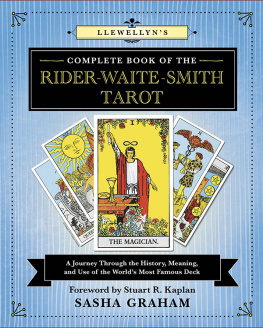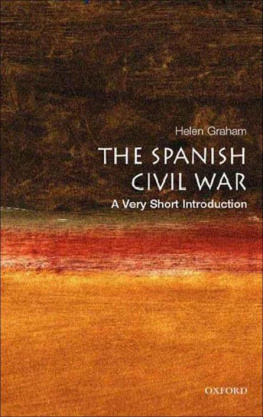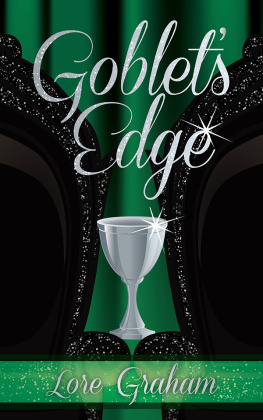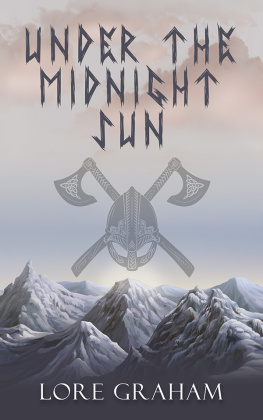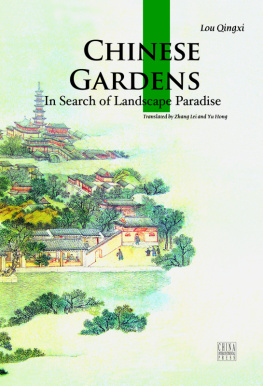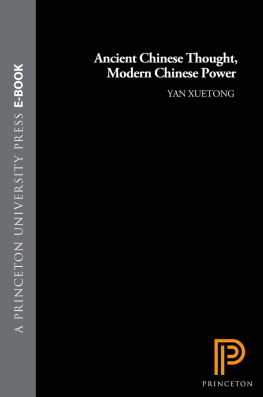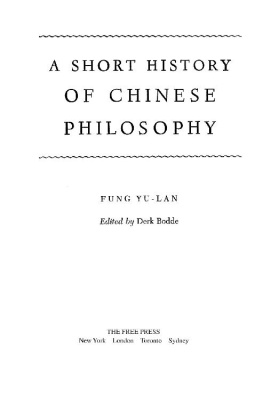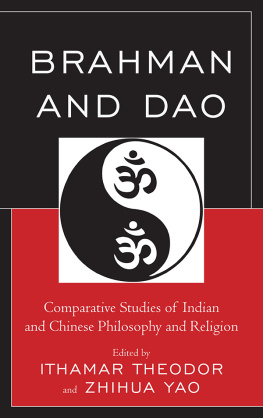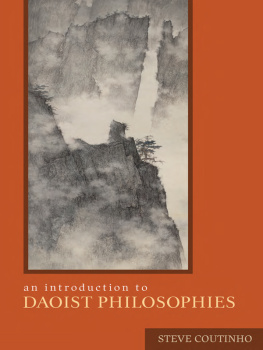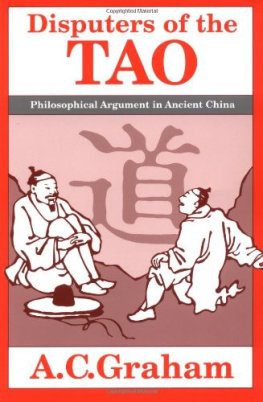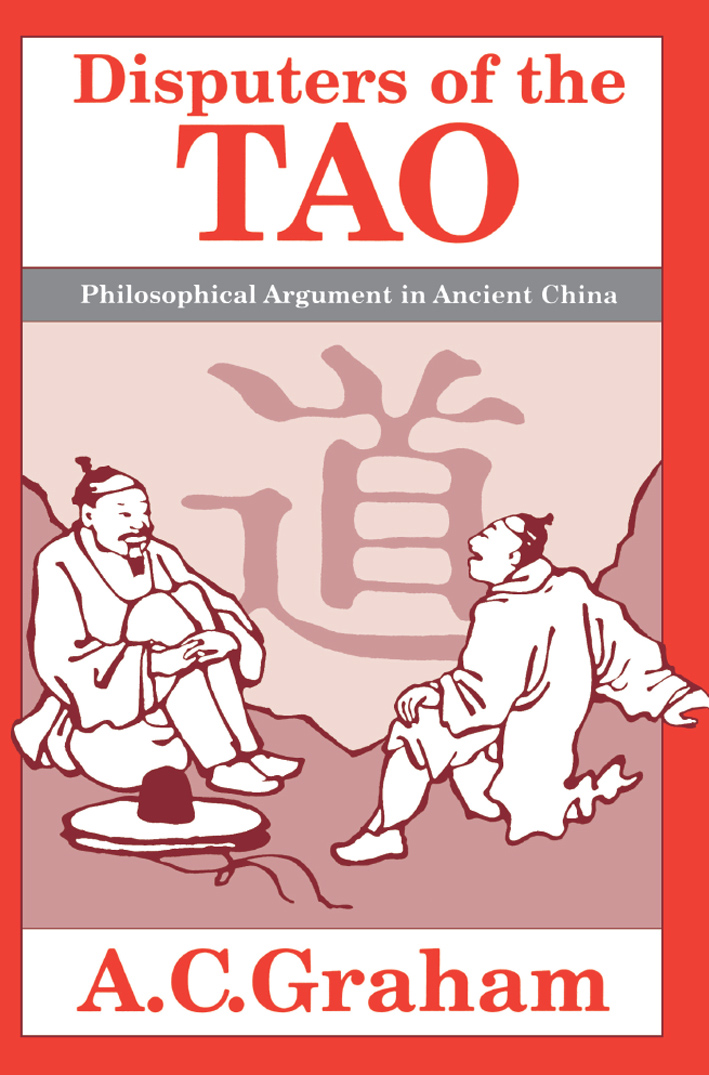


Map on reproduced by permission from Yu-lan Fungs A History of Chinese Philosophy, translated by Derk Bodde and published by Princeton University Press.
This book has been reproduced in a print-on-demand format from the 2003 Open Court printing.
To order books from Open Court, call toll-free 1-800-815-2280 or visit our website at www.opencourtbooks.com.
Open Court Publishing Company is a division of Carus Publishing Company.
1989 by Open Court Publishing Company
First printing 1989
Second printing 1991
Third printing 1993
Fourth printing 1995
Fifth printing 1997
Sixth printing 1998
Seventh printing 2001
Eighth printing 2003
All rights reserved. No part of this publication may be reproduced, stored in a retrieval system, or transmitted, in any form or by any means, electronic, mechanical, photocopying, recording or otherwise, without the prior written permission of the publisher, Open Court Publishing Company, a division of Carus Publishing Company, 315 Fifth Street, P.O. Box 300, Peru, Illinois 61354-0300.
Library of Congress Cataloging-in-Publication Data
Graham, A. C. (Angus Charles)
Disputers of the Tao: philosophical argument in ancient China/A.C. Graham.
p. cm.
Bibliographical: p.
Includes index.
ISBN 978-0-8126-9942-5
1. Tao. 2. Philosophy, Chinese. I. Title
B127.T3G69 1989
89-32227
18.11dc19
CIP
Table of Contents
Guide
CONTENTS
This is a general history of Chinese philosophy in the classical age (500200 B.C.) which takes advantage of the progress of textual, grammatical and exegetical studies over the last few decades. Its theme is as much how the sages thought as what they thought, with the focus on debate between rival schools. We now know that there is much more rational discourse in the literature than used to be supposed, especially since scholars ceased to be deterred by textual problems from taking full account of the Later Mohist corpus. But just as much attention will be given to the analysis of modes of thinking at the opposite extreme from Western rationality, to the aphorisms of Lao-tzu, the correlations of Yin-Yang cosmology and the divinatory system of the Yi. Direct quotation will sometimes exceed exposition, to avoid that dangerous detachment of thoughts from thinking and saying which leaves little behind but labels and slogans, universal love (Mo-tzu), Human nature is good (Mencius), Human nature is bad (Hsn-tzu).
The major histories of Chinese philosophy available in English earlier in this century came from Chinese stimulated to re-examine their tradition by influences from the West, by Pragmatism (Hu Shih) and Neo-Realism (Fung Yu-lan). In recent years the most original proposals have come from the borders between Western sinology and professional philosophy, for example from the philosopher Herbert Fingarette in Confucius: The Secular as Sacred, and the sinologist Roger Ames and philosopher David Hall in Thinking Through Confucius. We, like the Chinese, fully engage with the thought only when we relate it to our own problems. I shall not scruple to ride a couple of hobby-horses of my own: the impossibility of fully disengaging analytic from correlative thinking, and a quasi-syllogism useful for interpreting Chinese thought which has also altered my perspective on Western moral philosophynot because I suppose that the understanding of Chinese philosophy depends on swallowing my own, but because it does depend on philosophising for oneself. Taking Chinese thought seriously is not simply a matter of acknowledging the rationality of some of it (and perhaps denying the name philosophy to the rest), nor of discovering something valuable to oneself in the poetry of Lao-tzu or the diagrams of the Yi. Its study constantly involves one in important contemporary issues in moral philosophy, the philosophy and history of science, the deconstruction of established conceptual schemes, the problems of relating thought to linguistic structure, and correlative thinking to logic.
References are supplied to existing versions of the texts, but all quoted passages are newly translated. This is necessary to ensure consistent equivalents to the key words. In any case available translations inevitably represent all stages in the progress of sinology over the last century; the reader searching for a quoted passage in an older version may sometimes find it hard to recognise. Romanisation follows the Wade-Giles system. I have occasionally supplied tone marks to distinguish words pronounced in different tones which would otherwise be confusable (for example the Emperor Chu overthrown by the Chou).
Since the book is designed for the general reader interested in philosophy, works of scholarship available only in Chinese or Japanese are mentioned only when depending on evidence unpublished in Western languages. I apologise if this does less than justice to the importance of Far-Eastern scholarship. For full acknowledgement of aid from others I would have to mention everyone with whom I have discussed the issues fruitfully over the 30 years or more that I have worked in this field. Many will find their names in the body of the work; I select for explicit thanks only some who have read and criticised substantial parts of the manuscript, Christoph Harbsmeier, Roger Ames, Henry Rosemont, Hal Roth, Robert Henricks.
I wish to thank also the institutions in which I have worked on this book; the Institute of East Asian Philosophies, Singapore; the Department of Linguistics, Tsing Hua University, Taiwan; the Department of Religious Studies, Brown University; the Department of Philosophy, University of Hawaii; and also the School of Oriental and African Studies, London, where I did my earlier researches into Chinese language and philosophy.
Texts
| An | Analects |
| Cz | Chuang-tzu |
| HF | Han Fei-tzu |
| HN | Huai-nan-tzu |
| Hs | Hsn-tzu |
| Kz | Kuan-tzu |
| LSCC | L-shih chn-chiu (L Spring and Autumn) |
| Lz | Lao-tzu |
| Me | Meng-tzu (Mencius) |
| Mo | Mo-tzu |
Editions and Journals
| BSOAS | Bulletin of the School of Oriental and African Studies (London) |
| BSS | Basic Sinological Series (Kuo-hseh chi-pen tsung-shu)  |
| ed. | edited |
| HJAS | Harvard Journal of Asiatic Studies |
| HY | Harvard-Yenching Institute Sinological Index Series |
| JAOS | Journal of the American Oriental Society |
| JCP | Journal of Chinese Philosophy |



